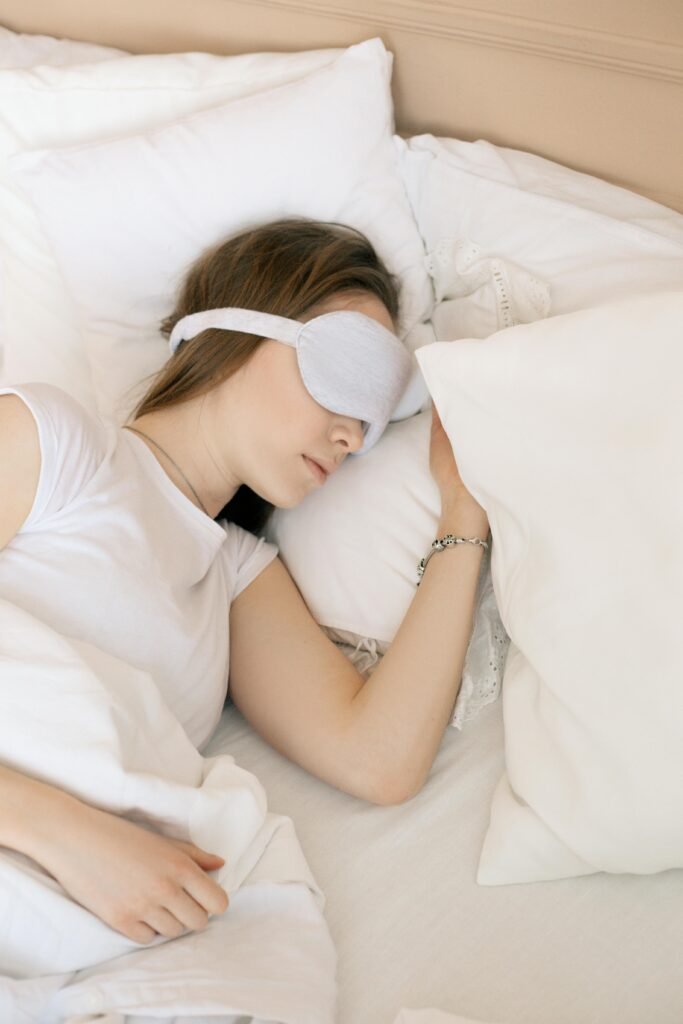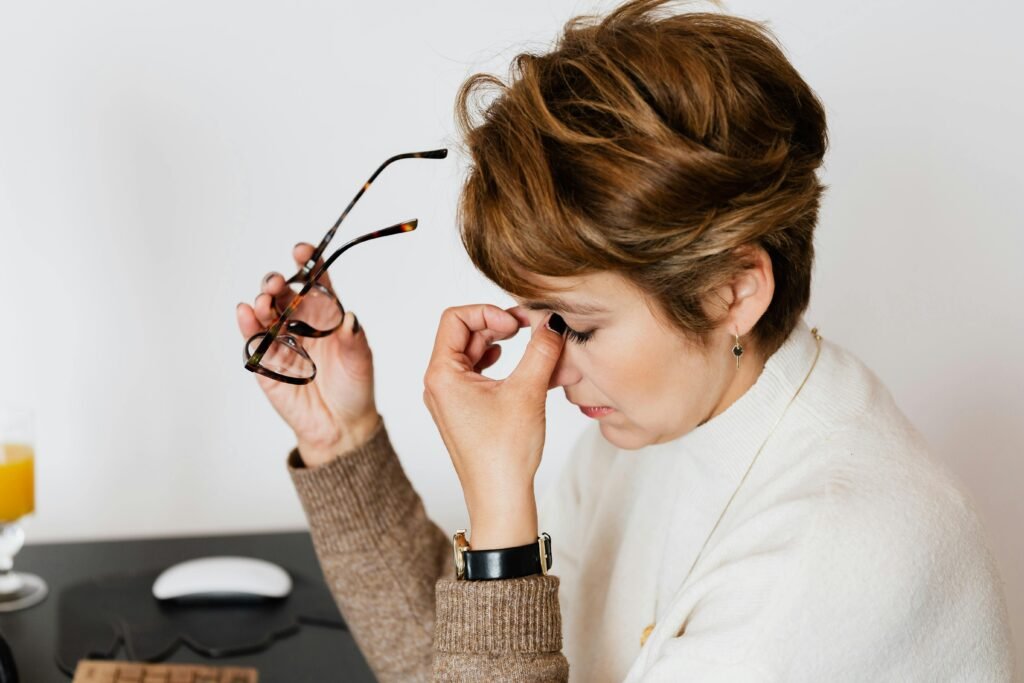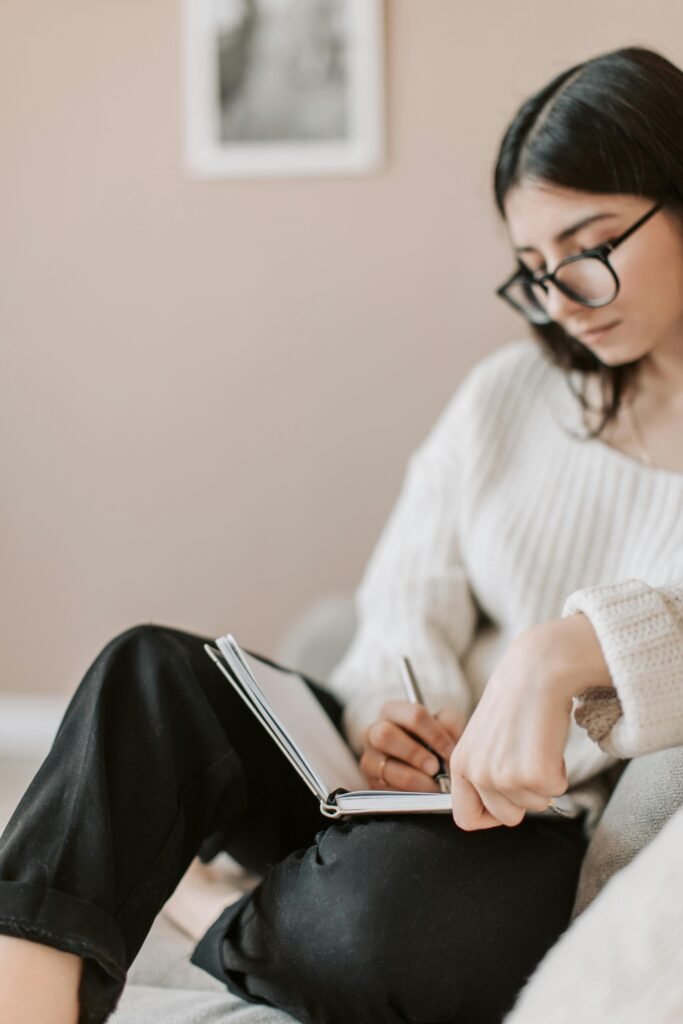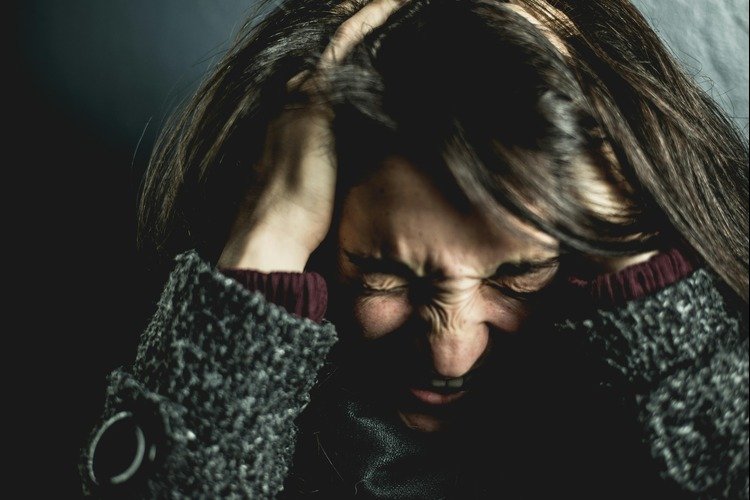Have you ever had one of those days where your heart races, your chest feels tight, and your brain won’t stop spinning – yet when you try to figure out what is wrong.. there’s nothing?
No fight, No deadline. No drama. Just a wave of anxiety that shows up, uninvited.
You’re not imagining it. And you’re definitely not alone.
This kind of like “out-of-the-blue” anxiety is incredibly common and surprisingly misunderstood. Let’s figure out why you might feel anxious for no reason, what could be happening behind the scenes, and how can you take back control.
Your Brain Is Wired to Sense Threats (Even When None Exist)
Anxiety is your brain’s way of keeping you safe. Even if there’s no actual danger, your brain sometimes misfires – triggering a stress response just in case.
This can be due to:
- Chronic Stress (builds up unnoticed)
- Overstimulation (from social media, news, or work overload)
- Past trauma that left a lasting “alarm” in your nervous system
Your mind might not see a threat but your body still reacts as if one is there.
You’re Tired And Your Brain Knows It

Sleep isn’t just rest. Its so much more than rest. Its emotional repair!
When you’re sleep deprived, your brain struggles to process emotions properly, making random anxiety more likely.
Try this:
- check your sleep hygiene
- Avoid screens 1 hour before bed
- Don’t underestimate the benefits of a consistent bedtime.
Hormones, Caffeine, or…Your Breakfast?
Yup — biology plays a role too.
- Caffeine and sugar spikes can trigger nervousness and anxious feelings.
- Hormonal shifts (think PMS, menopause, or thyroid issues) can amplify anxiety.
- Skipping meals or dehydration can trick your body into thinking something’s wrong.
Sometimes, your body’s just out of sync, and your brain interprets that as anxiety
Learn more about how caffeine affects anxiety
You’re Bottling Things Up and It Leaks Out

Suppressed emotions don’t disappear — they go underground. You may be “fine” on the outside, but internalized stress, guilt, or sadness builds pressure.
Over time, this can surface as unexplainable anxiety, irritability, or physical symptoms like tight muscles or headaches.
5. Anxiety Can Be Habitual

If you’ve felt anxious often in the past, your brain may have developed a “path of least resistance” — making it easier to feel anxious again. It’s like muscle memory but for fear.
This is especially true in:
- People with Generalized Anxiety Disorder (GAD)
- Those recovering from panic attacks
- Individuals who grew up in unstable environments
What to Do When You Feel Anxious for No Reason

Let’s get practical. Here are grounded ways to respond when anxiety attack out of nowhere.
1. Name It. Don’t Shame It.
Say to yourself: I am feeling anxious right now. I don’t need to know why.
This creates emotional distance and reduces panic.
2. Ground Yourself in the Present
When you experience stress or anxiety; Try the 5-4-3-2-1 method:
- 5 things you can see
- 4 things you can touch
- 3 things you can hear
- 2 things you can smell
- 1 thing you can taste
This resets your nervous system and reconnects you to your body.
3. Breathe Like You Mean It

A simple technique: inhale for 4, hold for 4, exhale for 6. Longer exhales activate the parasympathetic nervous system (a.k.a. the calming one).
4. Check Your Environment
Try to ask yourself:
Did I eat recently?
Am I dehydrated?
Did I sleep 8-9 hours?
Is my phone overstimulating me?
Sometimes, small fixes solve big problems.
5. Talk It Out or Write It Down

Journaling helps you identify hidden triggers. Or, text a trusted friend: “Hey, I feel anxious and don’t know why. Can I vent for a second?” Connection is a powerful anxiety disruptor.
6. Don’t Wait to Get Help
If you’re feeling like this regularly, it might be time to speak with a therapist.
Cognitive Behavioral Therapy (CBT) and even online therapy platforms can make a huge difference.
Need a place to start? Check out:
Final Thoughts
Feeling anxious for no reason doesn’t mean you’re broken. It means your brain and body are trying to tell you something — even if the message isn’t clear yet.
By getting curious (not critical), building small supportive habits, and knowing you’re not alone, you can take real steps toward peace — not just coping, but healing.
Want more support? Explore our Mental Health section for more insights, tools, and stories to help you feel more grounded every day.


